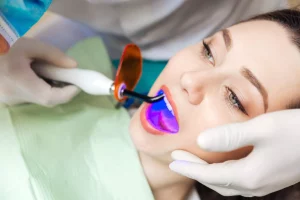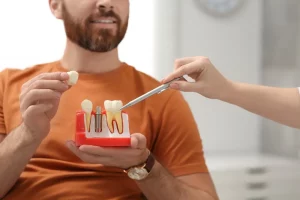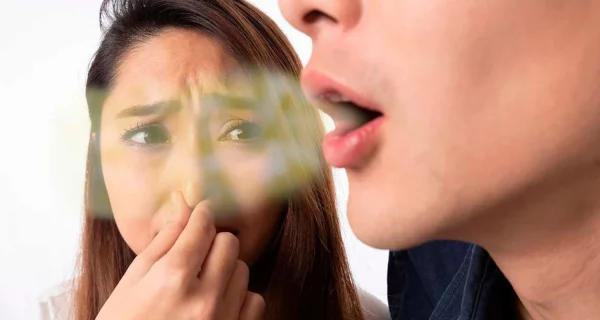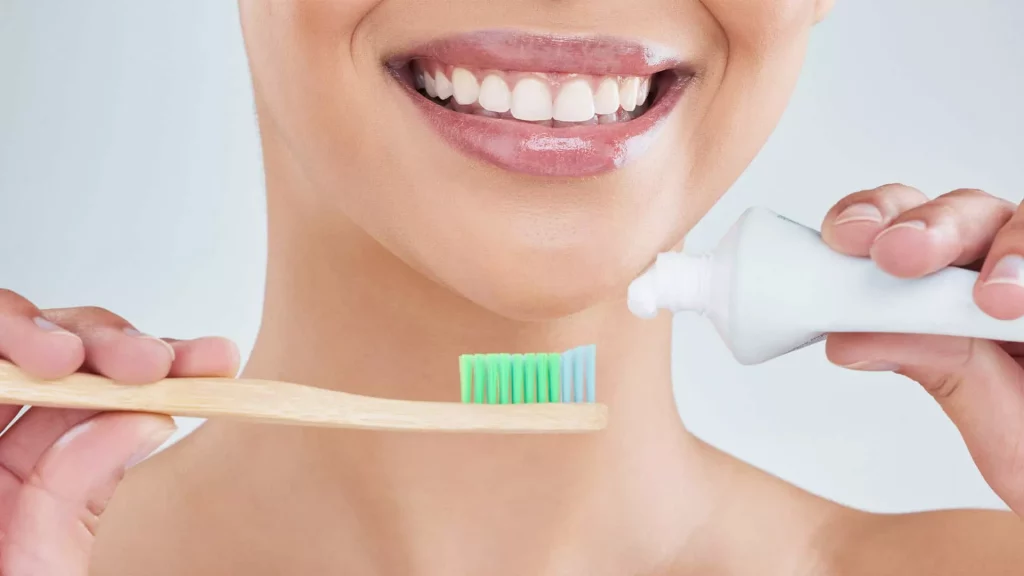Last Updated on: 19th December 2025, 10:03 am
The action of sucking is an innate instinct of human beings;thanks to it children learn to feed themselves. It is quite normal to see a baby sucking his thumb as part of his natural reflexes, but when this habit remains for too long, it will bring problems in the development and growth of the teeth and their adjacent structures. So, how can we prevent our children sucking their fingers past the normal stopping time?
THUMBSUCKING
This habit is defined as any behavior done repeatedly and often unconsciously. Thumbsucking is a common habit for most children as it helps them feel calm and secure, but the habit leaves between the age of 2 to 4 years. When thumb sucking persists, it becomes a negative habit because between this age the child has full growth of the front teeth, jaws, and the development of their perioral musculature. Thus, thumbsuckinga series of health problems that if they persist may become irreversible. The sucking of pacifiers or bottles can produce similar effects on the teeth, but this habit is easier to correct.
CONSEQUENCES OF THUMBSUCKING
The persistence of thumbsucking in children leads to the development of a series of problems for their health, causing negative effects that if not stopped and treated in time can become irreversible. We must also consider the intensity and frequency of the habit; depending on this,the alterations in occlusion and development will be more marked. The consequences of thumb sucking are:
- Open Bite: The pressure exerted by the child when sucking his or her finger leads to excessive elevation of the roof of the palate, while the maxillary arch gradually narrows. According to the Spanish Association of Pediatric Dentistry, this deformity, which specialists call gothic palate, not only hinders the functions of chewing and swallowing food, but it can also have a negative impact on the child’s speech development and pronunciation.
- Palate deformity: The force exerted by the finger on the palate causes it to grow in a convex shape, resulting in a deep palate.
- Maxillary hypoplasia: Due to the presence and pressure of the finger inside the mouth, a deficiency in the growth of the upper jaw might ensue.
- Difficulty in speech: The front teeth play an important role in phonetics and the articulation of sounds, since the tongue uses the front teeth as support to emit sounds and consonants such as S, V, Z and F. Not having adequate development due to digital suction also causes difficulty in the speech of children. On the other hand, keeping his finger in his mouth will prevent the child from vocalizing words correctly, causing dyslalia.
HOW DO YOU PREVENT A CHILD FROM SUCKING HIS OR HER THUMB?
Take into consideration the following advice given by the American Dental Association (ADA):
- One of the causes of thumbsucking is when the child presents anxiety. You thenu have to work on the cause that triggers the anxiety and apply relaxation exercises to avoid the habit.
- Say words of praise when the child does not suck their thumb and do not punish them, as this could produce even greater anxiety.
- For older children, explain the effects of continued thumbsucking.
- There are methods such as bandaging the thumb or finger used by the child.
- Apply a bitter-tasting medicine on the thumb so when the child wants to suck it, he/she relates it to an unpleasant sensation and little by little cancels the habit.
- Visit the dentist since he/she will provide the appropriate treatment to correct and prevent an occlusion from
CONTACT US
If you have any questions about this topic or any other, please feel free to contact or visit us at Channel Island Family Dental.
At Channel Island Family Dental, we will be attentive to your visit and make a timely diagnosis. In addition, our dentist in Oxnard, Santa Paula, Ventura, Newbury Park o Port Hueneme will guide you to the best treatment to bring back your best smile.














